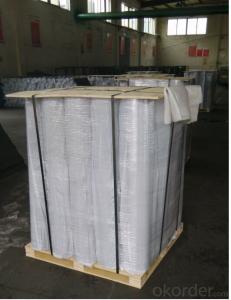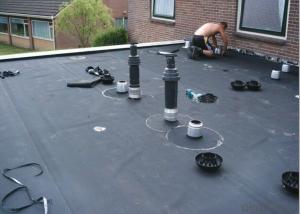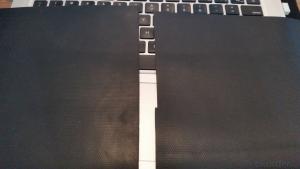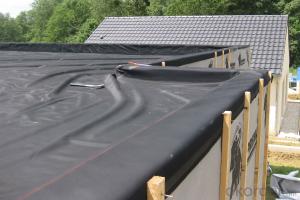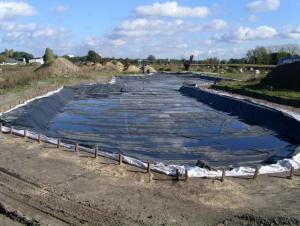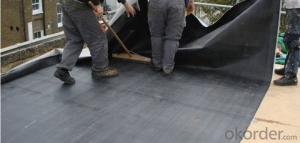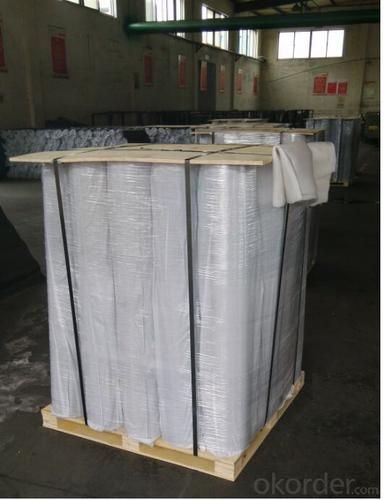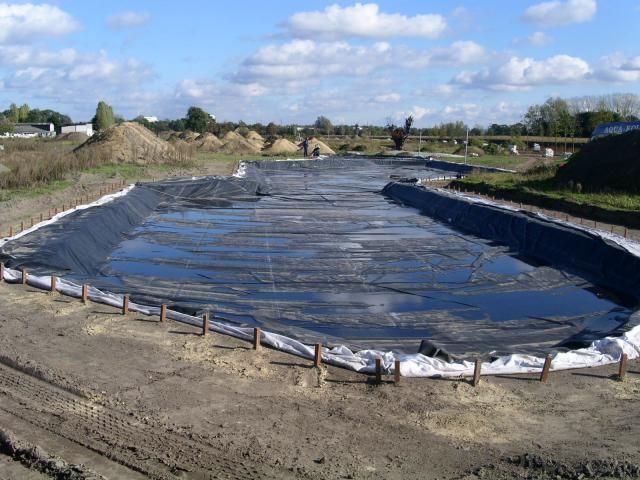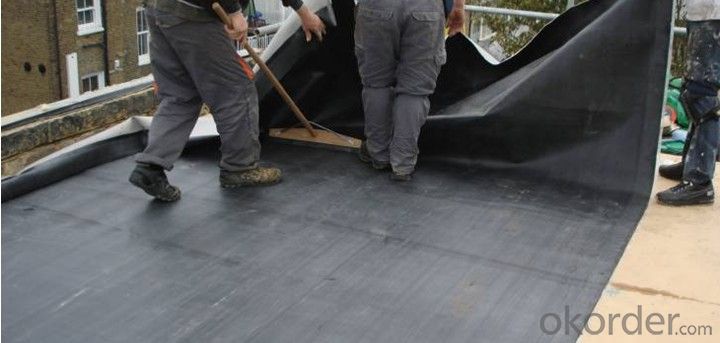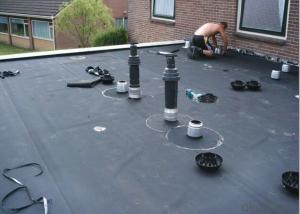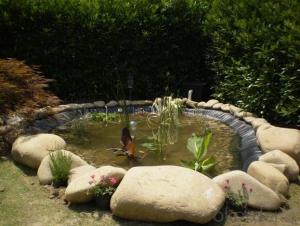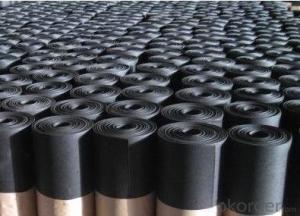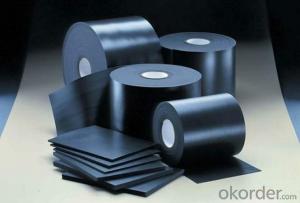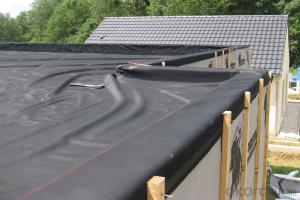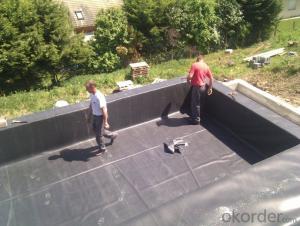EPDM Reinforced Waterproof Membrane with Customized Thickness
- Loading Port:
- Shanghai
- Payment Terms:
- TT OR LC
- Min Order Qty:
- 50000 m²
- Supply Capability:
- 5000000 m²/month
OKorder Service Pledge
OKorder Financial Service
You Might Also Like
EPDM Reinforced Waterproof Membrane with Customized Thickness
Description Of EPDM Reinforced Waterproof Membrane with Customized Thickness:
1. Excellent physical and mechanical performance, high tearing resistance;good deformation adaptability, high puncture resistance;
2. High aging resistance, high UV resistance, anti-acid & alkali;
3. Excellent low & high temperature resistance, innocuous, long life span;
4. Perfect water proof performance, seepage and humidity resistance.
Main Features of EPDM Reinforced Waterproof Membrane with Customized Thickness:
A.Polyester based SBS Modified Bitumen Waterproofing Membrane
a. Strong impermeability
b. High tensile strength, elongation, ability to adapt the grassroots shrinkage deformation and cracking
c. Puncture-resistant, broken resistant, tear-resistant
d. The corrosion resistance, resistance to mildew, weathering good
e. Construction convenient, hot-melt can be operated Four Seasons Construction, reliable joints
B. Fiberglass based SBS Modified Bitumen Waterproofing Membrane
a. High tensile strength, stability of a good size
b. High Temperature good performance
c. Damage resistance, corrosion resistance, resistance to mildew, weathering good performance
d. Good construction performance, reliable joints.
Specifications of EPDM Reinforced Waterproof Membrane with Customized Thickness:
| Material | EPDM Rubber |
| Size | 1.2m (width)*20m (length) or customized, weldable type 2.05m or 4m width |
| Thick | 1.2mm, 1.5mm, 2.0mm |
| Type | Vulcanized & Weldable |
| Pattern | Non-reinforced (homogeneous) |
| Certificate | ISO9001/14001 |
Applications of EPDM Reinforced Waterproof Membrane with Customized Thickness:
geomembrane used in groundsill of road, highway, railway and waterproof layer of swelling clay and wet collapsed loess.Geomembrane can be widely used in areas of garbage burying, waste disposal and underground construction projects.such as below:
- aquaculture ponds
- Ouchi root barrier membrane
- Floating baffles;
- Process wastewater
- Stormwater impoundments;
- Secondary containment;
- Spill containment
- Manure and biogas tanks and covers
- Potable water tanks and covers;
- Sludge Drying beds;
- Bioremediation covers & liners;
- Leachate ponds
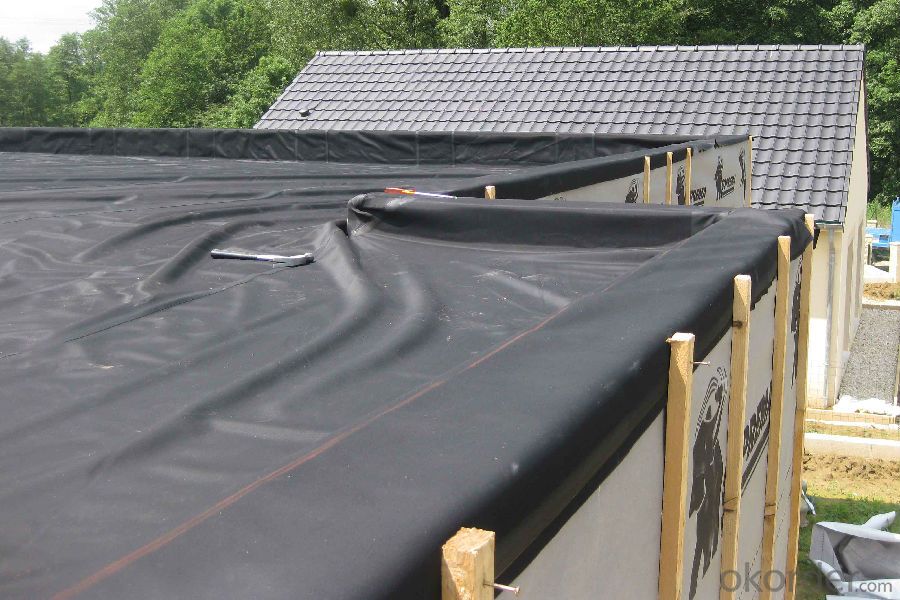
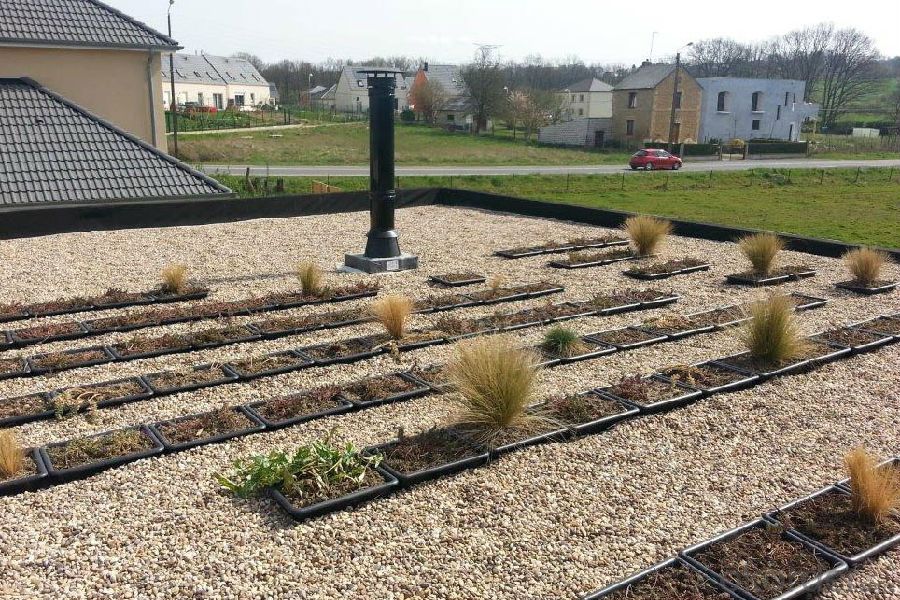
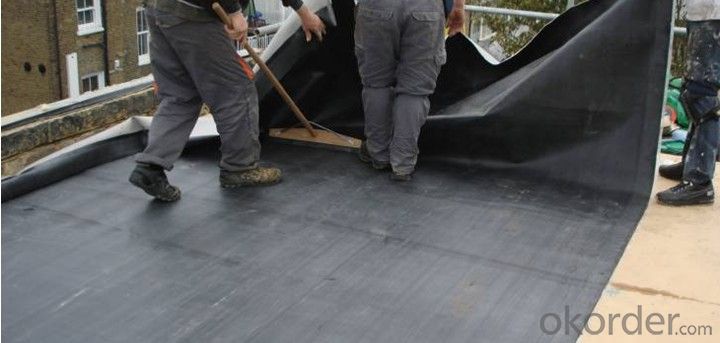
IMages of EPDM Reinforced Waterproof Membrane with Customized Thickness:
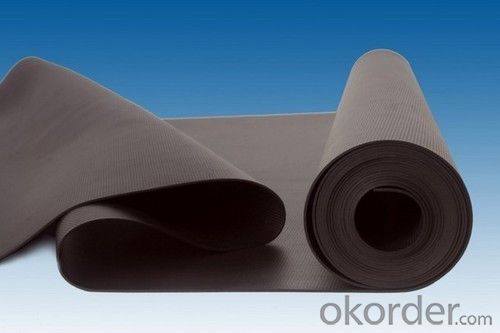
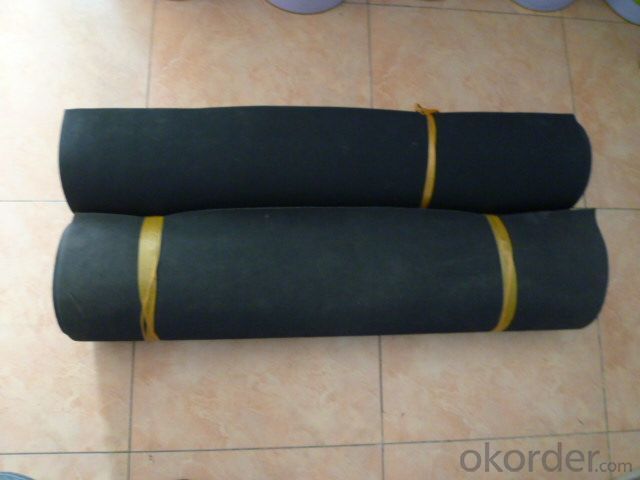
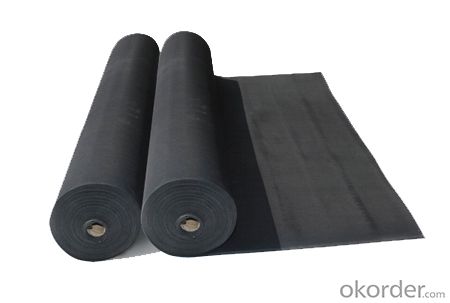
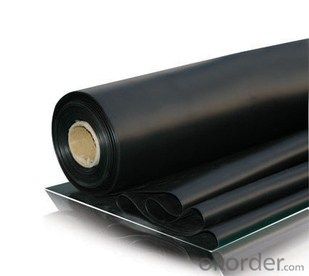
FAQ of EPDM Reinforced Waterproof Membrane with Customized Thickness:
1. What are we supplying?
We are specialized in producing Colorful Asphalt Roof Shingle, SBS/APP modified bitumen waterproof membrane, Self adhesive bitumen waterproof membrane, PVC waterproofing membrane, EPDM rubber roofing membrane, Single Component Polyurethane Waterproof Coating, and Spray Polyurea Waterproof Coating
.
2. How Many years experience do we have?
We have been exported to more than 20 countries in the past 15 years.
3. How long do we usually reply your request?
We always reply our customer within 24 hours.
- Q: Can a waterproofing membrane be used for a restaurant kitchen floor?
- Indeed, a restaurant kitchen floor can benefit from the utilization of a waterproofing membrane. Given the propensity for spills and water exposure in restaurant kitchens, it becomes imperative to establish an effective waterproofing system to safeguard the structural foundation. By employing a waterproofing membrane, an uninterrupted and impenetrable barricade can be established, successfully hindering the ingress of water, oil, and other liquids into the floor, thus averting any potential harm. Moreover, these membranes frequently exhibit resistance to chemicals and possess the ability to endure substantial foot traffic, rendering them highly suitable for the arduous conditions prevalent in a restaurant kitchen.
- Q: Can a waterproofing membrane be used in swimming pools or other water features?
- Certainly, swimming pools or other water features can indeed utilize a waterproofing membrane. In fact, it is highly advisable to employ such a membrane in these areas to avert water leakage and potential harm. By serving as a barrier between the water and the surrounding structures, a waterproofing membrane ensures that the water remains contained within the pool or water feature. Not only does it prevent water seepage, which can inflict structural damage and necessitate expensive repairs, but it also safeguards the pool or water feature from the harsh chemicals employed for water treatment, thereby guaranteeing its durability and long lifespan. Consequently, the utilization of a waterproofing membrane is an essential measure in the construction or renovation of swimming pools or other water features, guaranteeing their functionality and longevity.
- Q: Are waterproofing membranes resistant to wind-driven rain?
- Yes, waterproofing membranes are generally resistant to wind-driven rain. These membranes are designed to create a protective barrier against moisture infiltration, including rainwater. They are typically made from materials such as rubber, asphalt, or synthetic polymers, which have high resistance to water penetration. Additionally, many waterproofing membranes are reinforced with additives or layers to enhance their strength and durability, making them capable of withstanding the impact of wind-driven rain. However, it is important to note that the effectiveness of waterproofing membranes can also depend on proper installation techniques and the quality of materials used.
- Q: Can a waterproofing membrane be used in steam rooms?
- Indeed, the utilization of a waterproofing membrane within steam rooms is possible. This specialized membrane is crafted to obstruct water infiltration and is commonly employed in areas where moisture is prevalent, such as bathrooms, showers, and steam rooms. The primary function of this membrane is to create a barrier that hinders water vapor from penetrating the underlying structure and inducing harm. In the case of steam rooms, where elevated levels of humidity and moisture are abundant, the implementation of a waterproofing membrane is imperative in safeguarding the walls, floors, and other surfaces from water damage and the growth of mold. It is of utmost importance to select a waterproofing membrane that is explicitly designed for environments with high moisture content, such as steam rooms, in order to ensure sufficient protection and durability. Furthermore, for the membrane to effectively fulfill its purpose within a steam room setting, proper installation and adherence to the guidelines provided by the manufacturer are essential.
- Q: Can a waterproofing membrane be used on tunnels with architectural features?
- Indeed, tunnels with architectural features can benefit from the application of a waterproofing membrane. Such membranes possess versatility, enabling their usage on different structures, including tunnels with architectural elements. Their primary purpose is to establish a protective barrier against water infiltration, consequently safeguarding the structure against moisture-related harm. Regardless of the tunnel's unique architectural components, such as curves, arches, or decorative embellishments, a tailored waterproofing membrane can be tailored and implemented to ensure optimal water resistance. Therefore, it is imperative to seek guidance from a proficient waterproofing specialist experienced in working with tunnels and architectural features. They will assist in determining the most suitable membrane system for the specific project prerequisites.
- Q: What are the requirements for frost resistance of basement floor polymer waterproofing membranes?
- High polymer modified asphalt waterproofing membrane is -30 degrees.
- Q: Do you know how many square meters of waterproofing membrane to send a set of tests?
- Chlorinated polyethylene-rubber blend of waterproofing membrane: 250 volumes for a group, the lack of a group also.
- Q: Can a waterproofing membrane be used in earthquake-prone areas?
- Yes, a waterproofing membrane can be used in earthquake-prone areas. In fact, it is highly recommended to use a waterproofing membrane in such areas to protect buildings and structures from potential water damage caused by earthquakes. Waterproofing membranes are designed to create a barrier against water infiltration, which can be crucial in preventing structural damage and maintaining the integrity of a building during seismic events. Additionally, these membranes can also provide some level of flexibility and elasticity, which can help absorb and distribute the forces exerted during an earthquake, reducing the risk of cracks and leaks. However, it is important to ensure that the waterproofing membrane used is specifically designed and tested to meet the requirements of earthquake-prone areas, considering factors such as the intensity and frequency of seismic activity in the region. Consulting with a structural engineer or a waterproofing specialist is highly recommended to determine the most suitable waterproofing system for earthquake-prone areas.
- Q: Can a waterproofing membrane be used on both interior and exterior surfaces of a structure?
- Yes, a waterproofing membrane can be used on both interior and exterior surfaces of a structure. Waterproofing membranes are designed to create a barrier that prevents water or moisture from penetrating into the structure, whether it is applied on the inside or outside. On the interior, a waterproofing membrane can be used to protect basements, crawl spaces, or other areas prone to moisture intrusion. This helps to prevent water damage, mold growth, and other issues that can arise from excess moisture in these spaces. On the exterior, a waterproofing membrane is commonly used to protect the foundation, walls, and other structural elements from water infiltration. This is especially important in areas with heavy rainfall or where the water table is high. By applying a waterproofing membrane on the exterior, it helps to keep the structure dry and prevents potential damage caused by water seepage. It is important to note that different types of waterproofing membranes are available for specific applications, so the selection of the appropriate membrane will depend on the specific requirements of the project.
- Q: Can a waterproofing membrane be used on swimming pool decks?
- Indeed, swimming pool decks can benefit from the use of a waterproofing membrane. The purpose of these membranes is to effectively block water infiltration, which makes them particularly suitable for safeguarding areas that are constantly exposed to moisture, like swimming pool decks. Typically, these membranes are applied directly onto the deck's surface, creating an impermeable and long-lasting layer. This ensures that water does not permeate the deck, thus averting potential harm caused by dampness, such as cracks, the growth of mold, or structural decline. Furthermore, waterproofing membranes offer additional advantages, including prolonging the lifespan of the deck and enhancing its overall aesthetic appeal.
Send your message to us
EPDM Reinforced Waterproof Membrane with Customized Thickness
- Loading Port:
- Shanghai
- Payment Terms:
- TT OR LC
- Min Order Qty:
- 50000 m²
- Supply Capability:
- 5000000 m²/month
OKorder Service Pledge
OKorder Financial Service
Similar products
Hot products
Hot Searches
Related keywords
